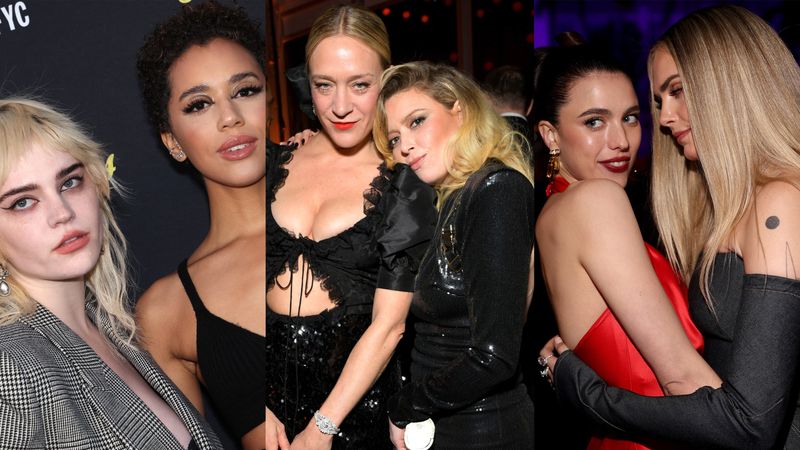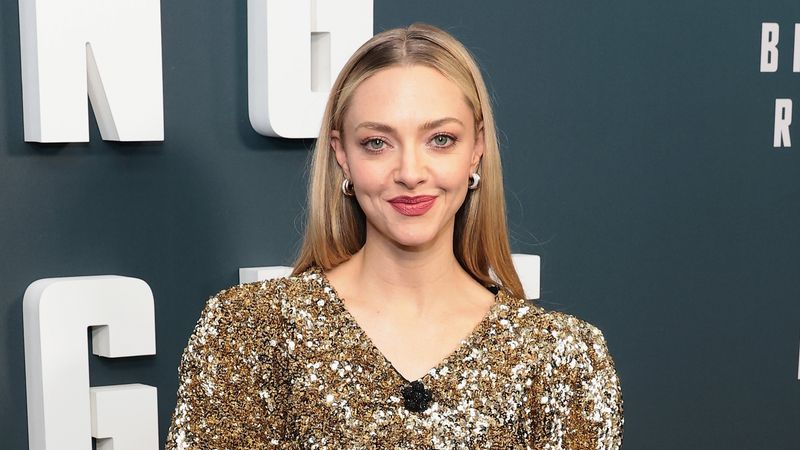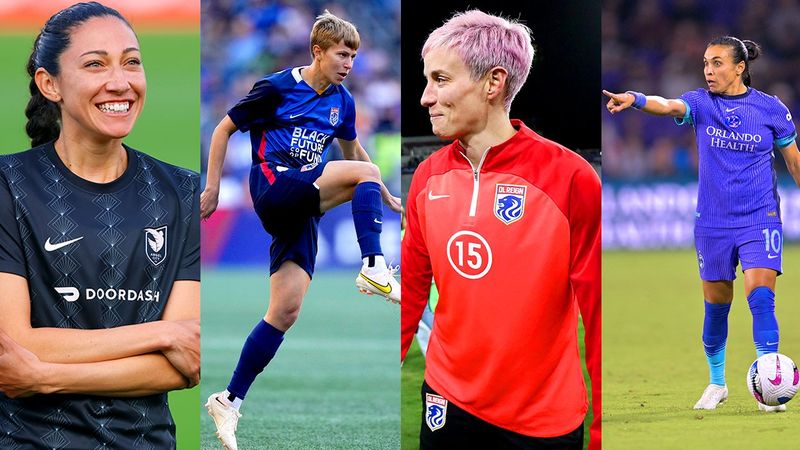Susan Feniger doesn’t have much time for sleep. The lesbian food maven co-owns five restaurants in California and Las Vegas, and this summer launched her latest cookbook, Susan Feniger’s Street Food, based on her newest restaurant, STREET. Feniger is an active philanthropist who sits on the boards of the Los Angeles Gay and Lesbian Center, and the Scleroderma Research Foundation. A seasoned television personality, Feniger has appeared on screen with Julia Child, competed in Top Chef Masters, and co-hosted the Food Network program Too Hot Tamales with her business partner Mary Sue Milliken in the mid-90s. Feniger lives in Los Angeles with her partner of nearly 18 years, writer and director Liz Lachman. Read more about Feniger and other out chefs in the latest issue of the Advocate's feature article, "Queers in the Kitchen."
She Wired: Where did you get your start in Latin cooking?
Susan Feniger: Mary Sue, my business partner and I, met when we were working at a French restaurant in Chicago. Then we opened our first place called City Café, in 1981 on Melrose. We both had been trained in very serious French kitchens. I went off to the south of France, she went off to Paris. But I think what happened is over the years, working in French kitchens back in the late 70s, there weren’t many women in the kitchen then, and when you did get into a very strict French kitchen in the United States … you got put to the prep kitchen because you were a woman, [and] most of the guys that you were working with ended up being Hispanic, and they would make these incredible meals... We opened up our first Border Grill in 1985, and that was after our first trip to Mexico City — we stayed with a prep cook and his family. We drove around in a VW bug, all over Mexico, and came back, and following our notes, which were hard to know what we had even eaten, but we opened up our first Border Grill.
So now we have Border Grill Santa Monica, Border Grill Downtown, Border Grill at Mandalay Bay in Las Vegas, and then our Border Grill trucks, and next March, we’re opening Border Grill at the Bradley Terminal, a little taqueria.
And then just three years ago, I did my solo venture without Mary Sue, called Street, up on Highland just above Melrose, and that’s all street-inspired food from all around the world.
You mentioned a little about being one of the few women in the kitchen. What challenges have you faced as a female chef?
Yknow, I have to say, it’s not even really something — I don’t even really feel like I thought about it that much back then. I was very, very, focused. I was a tomboy as a kid, and I was working in French kitchens, and I sort of took it like, I’m working as hard as I can to learn as much as I can, so that eventually I’m going to open up my own restaurant. And that’s really what I did.
Probably, in hindsight, as a woman, I’m sure I made less money than some of the men I was working side by side with, who probably had less experience than me… My focus at the time was to work in the kitchen for a year or two, move to the next kitchen, move to the next, until opening my own place. So I didn’t really feel like it was a struggle for me.
When I went to the South of France before I opened City Café, I probably felt that the most there. But a lot of that was probably about the language barrier. And y’know, I was a woman in a kitchen of 18-year-old French boys. And I was probably 23 or 24. And honestly, after the first few months, all the guys became my pals, and I had a great experience. I mean, no question, back in those days, there was definitely more of a struggle for women in the kitchen. I personally didn’t feel it as much, but it wasn’t my focus, and that’s sort of not how I’ve looked at stuff.
Does that difficulty transfer to finding funding and recognition for restaurants run by female chefs?
Well I think that’s one area that I do feel like is interesting. I think in the corporate world, not in terms of going out for individual investors, but in terms of the corporate world and where they look when they’re investing money, I think they tend to look at the men more than the women. Maybe I’m wrong. But my sense is that you see a lot more men out there funded for expansion and growth than you do women.
What’s the root cause behind that?
I think it’s just our culture. It’s probably changing – I’m sure it’s changing, it hasn’t been a big drawback, but it’s one of those things… I feel like when you go out into the world of venture capital or the family funds, it’s a little bit more of a boys club. Although that never would stop me or make me hesitate from going out and doing it. And I think it’s something that you can deal with, but it’s something I would say I’ve noticed.
Have you found challenges around being an out lesbian chef?
Honestly, really not. This industry, as the entertainment industry, is so openly out. [It is] certainly in the big cities, and I’ve been in big cities for a long time now. Many, many years ago, when I was first doing Food Network, I think I was sensitive to it. I remember when I was first starting Food Network, TV Guide wanted to do something, and I was nervous. This is probably 20 years ago, and I was nervous about having it come out that I was a lesbian. I definitely was. I never was in the closet from the time I came out. As soon as I knew it, I came out to my parents. I didn’t think it was a big deal – they obviously did.
They did not react well, then?
No they didn’t! I was maybe 26.
What was their reaction like?
They were totally shocked. My father was not happy, and my mother was completely upset. My dad didn’t talk to me for probably nine months. I was pretty rebellious, even as a kid, just in general. I had dropped out of college at one point, my dad threatened to come get me – he didn’t. I worked for a cabinet-maker, I moved in with my boyfriend. He probably wished he hadn’t gotten upset when I moved in with my boyfriend. But I kept persisting… For many years afterward, I’d go to gay pride and call my parents, and leave a message saying, I just came back from the most amazing time. I was here, at gay pride, it was incredible, and I just sort of kept putting it in their face. Not in a negative way, but just like, this is my life, you know? They never got great, but I ended up in a great relationship with both of them and I think they eventually just had to sort of be OK with it… My partner’s mom loves me, and we see her all the time. And she’s almost 90 and totally cool with it. She comes to our house all the time. But my parents couldn’t quite get there. For sure, they accepted my life and my partner and I would see them and have dinner with them, but not in the way they do with my sister and her husband.
So then, you are partnered?
Her name’s Liz Lachman, she’s a writer-director, and the most amazingly creative yet really smart businesswoman also. We’ve been together 17-and-a-half years.
Congratulations!
Thank you. She’s wonderful, and unbelievably supportive, and she’s just lovely. She’s such an incredible writer and director, and very creative, and yet she’s just smart and really well-read, and so she’s a sounding board in my business, and just fantastic.
Sounds like you two are well-suited.
Oh yeah, we both love to stay up really, really late! Because she was a singer-songwriter for a long time, and we both get up really, really early. Neither one of us need a lot of sleep. So I’ll call her at 10:30, 10:45, saying come on, meet me for dinner, and she’ll just get up, come out, meet me at 11:00 and we’ll have dinner.
With everything you do, do you ever sleep?
I’m so busy right now, I really am. I’ll tell you, this is probably something that’s always been part of my M.O. When I was in college, I literally tried an experiment to see, could I survive on three hours of sleep and how long could I survive for? Because, I think, I was always an early riser as a kid — always. But then my mother would always be up really late cooking, so then I would be up making fudge with her. But when I was in college I went for probably six weeks with getting three hours of sleep a night. I still, even when I get four or five hours of sleep, I wake up and I’m a little tired, but then I’m like, OK, I’m ready to go. So I don’t know. There’s plenty of time to sleep.
More on next page...
\\\
(continued)
What motivated you to become so involved in LGBT activism? You sit on the Board for the LA Gay and Lesbian Center.I think my parents were very much this way. My parents did a lot of charity work — just growing up, it seemed to be a part of that Midwest Jewish thing. There’s a million causes that need help, and we do a ton of charity work between Border Grill and Street. We do events all the time. I’m also on the board of Scleroderma Research Foundation. We’ve done an event called Cool Comedy, Hot Cuisine for the last 25 years, because my college roommate had this horrible disease. She passed away 10 years ago, and I’ve been doing this event where we raise money for research.And we’ve always done a lot of work for OutFest, and the Gay and Lesbian Center, but six or seven years ago, I just felt like I wanted to be more involved with the community and be able to be, on some levels, a spokesperson when it was appropriate. We have a ton of employees; we have like 400 employees between all the restaurants. And I do feel like it puts out there a really strong message that it’s OK to be out, and open, and I feel like our restaurants have always been very, very open and free and want the diversity to be a part of who we are and our culture. So I just feel like I’m most drawn for seniors and young kids, to be able to help be someone who maybe can set an example for this is how you can be open and live your life, and be within both worlds. Not just gay or straight, but both.I remember Liz and I used to go — way more often than we do now because I have no time — but we used to go to the park early in the morning, and there used to be this group of five or six older people who would end up with their dogs there. And at six in the morning, we’d have these wonderful political conversations. And one guy, who was like 75, and Republican and very straight, and another woman who was an African-American woman, very liberal, and Liz and I and a couple other people, and we’d have these amazing, fabulous discussions.And this one neighbor of ours, Bill, ended up doing his 80th birthday downtown at Ciudad and invited like 50 of his friends and made Liz and I come. He was so proud to announce us to all of his old Republican friends as his new gay friends, and I think like, God, if you can make one person be a little bit more aware and open, it’s a big step. So for me, going on the board, I felt like this is such an honor.The board at the Gay and Lesbian Center would blow you away. It’s the most impressive, generous, involved board I’ve ever known. The passion for the people that are on the board, as well as the team led by Laurie Jean — every time I go to a meeting, which of course, I can never get there cause I’m so damn busy, but every time I go to the meetings and retreats… The work that’s being done by the Center would inspire any non-profit in any part of this country. It’s just passionate, incredible, important work being done. I feel like I get a little bit more educated every time I do something with the board. I don’t feel like I give enough.We just did a great, amazing fundraiser, one of the other board members, David Bailey, and myself … and Wendy Melford, who’s not on the board but who is out and in the wine world. [We co-chaired] this food and wine event called Simply Divine. We had always done it at 2 Rodeo, but just this last time, we took over Melrose Place. Twenty-five of my pal’s restaurants, wineries, and we had a beer garden. It sold out more than it’s ever sold out — 700 tickets. And it was just an incredible fundraiser. It was, I think, our sixth year of doing it, and it was the biggest ever.I love that. I love being in a place where I can have friends to do favors, and we can raise $150, $200,000 and I know every year it’s going to grow. So it’s a great thing to be able to give back to the community.Where do you see yourself fitting in with activism? Do you call yourself an activist?
I would love to think I was an activist. I want to be more of an activist. I think if I wasn’t a chef, if I could have been, would have been smart enough, learned enough when I was younger, growing up, I would have been a politician. I love the idea of being more of an activist. I just feel like it’s so important in this day and age.
I mean, look at what the Republican Party is standing for these days. It just blows me away. I have constant arguments with my brother, who I love, who’s smart, and he’s a damn Republican, and I just don’t get it. It’s like, your sister’s gay, you’re Jewish. And I mean, their stance now on “legitimate rape?” It just blows me away. It’s like, who could support that party? Honestly, I’m a businesswoman, and when it comes down to it, that’s irrelevant to me. How we deal with human rights and issues, I just don’t see how anyone stands for anything different. The economic part of being a Republican, OK, well, I get. But the social issues that are out there, I just don’t get it for anyone who’s thinking about it at all. But I wish I was more of an activist – maybe when I retire, I will become more of an activist.
Given the recent Chick-fil-A melee, what are your thoughts on mixing food and politics?
I think it’s absolutely critical. Every HR person tells you not to do that, as a business owner, but I can’t help myself. I still have pins all over my board from Obama, and last election, I gave Obama pins to all of our staff … I feel like my business is who I am. And I’m not saying someone has to do that, but I’m going to give my opinion about who I am and I’m going to talk about it whenever I can, and I continually do that. Because I think it’s important to make strong statements.
As a kid, I was a Libertarian, and followed Ayn Rand, and thought that was the way life was, and freedom of speech and blah, blah, blah. And now I look at it, and … if I felt like people would do the right thing, then I get that, but they don’t. We don’t do the right thing. And I even feel like I don’t do the right thing. I wouldn’t even mind if we were a socialist economy.
I think part of my goal is to be able to, as much as I can, pass on whatever information I have. Mary Sue and I are big believers in sustainability. We’ve been partners with Monterey Bay Aquarium forever, only serving sustainable fish. So we’ve made all of our restaurants, we do it at Street also, all of our fish served is sustainable, according to Monterey Bay Aquarium. That’s a political statement. We try as much as we can, to have people think about eating more vegetables and less meat. I believe it’s healthier. It saves the environment – that’s political. I’m going to do as many Obama fundraisers as possible. I have a luncheon tomorrow with Sen. Feinstein, and I’m going to do as much as I can to put it out there.
I want the 400 kids that work for us, to understand a bit more. And they can make their own choice, but I’m going to do what I can to educate them about what I think is the right thing. And they’ll make their own choice! So I absolutely mix politics and business. I take it as my responsibility.


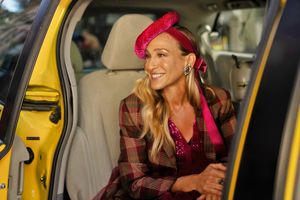



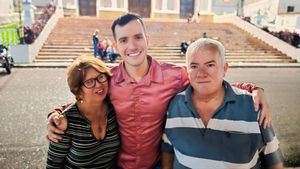


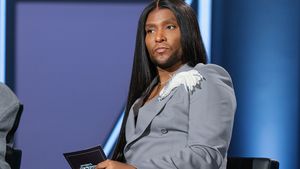


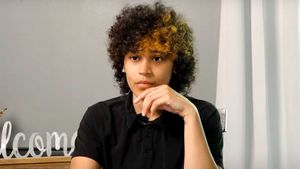
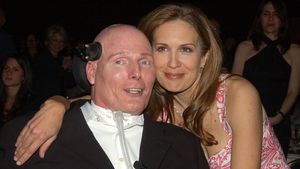

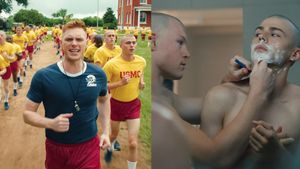









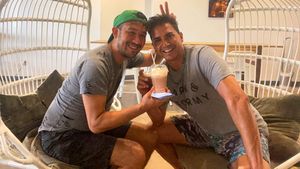










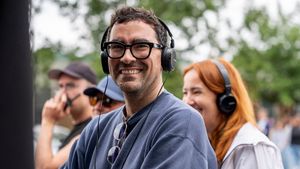


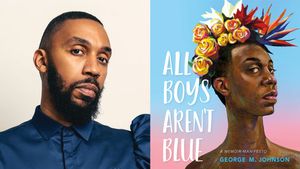
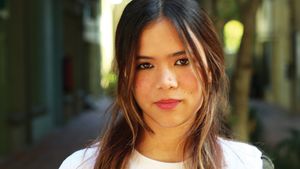

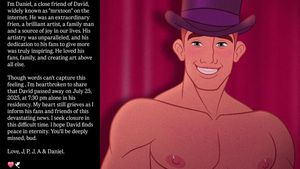


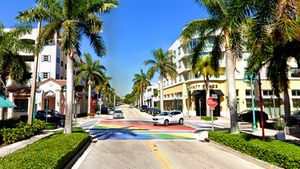


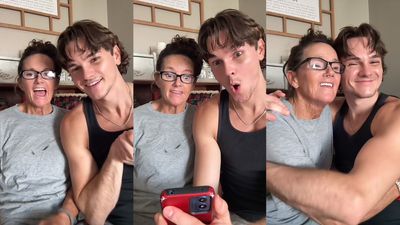
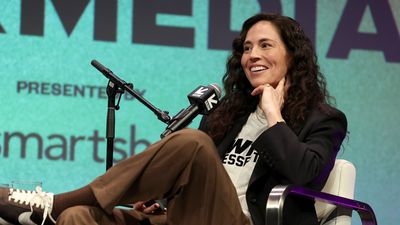
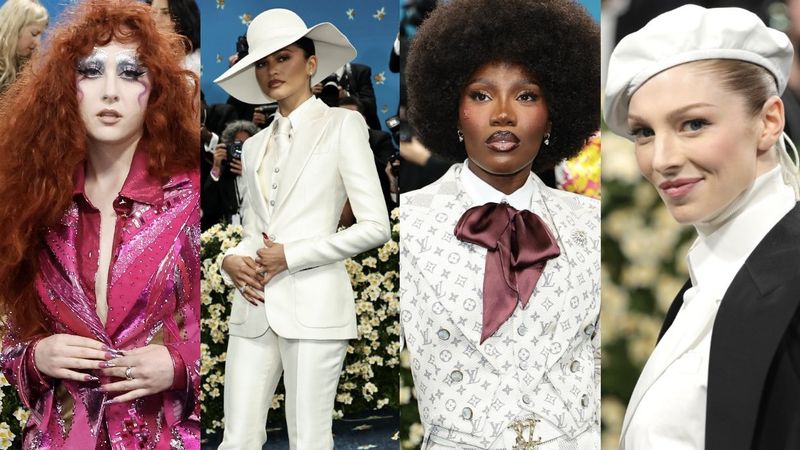



































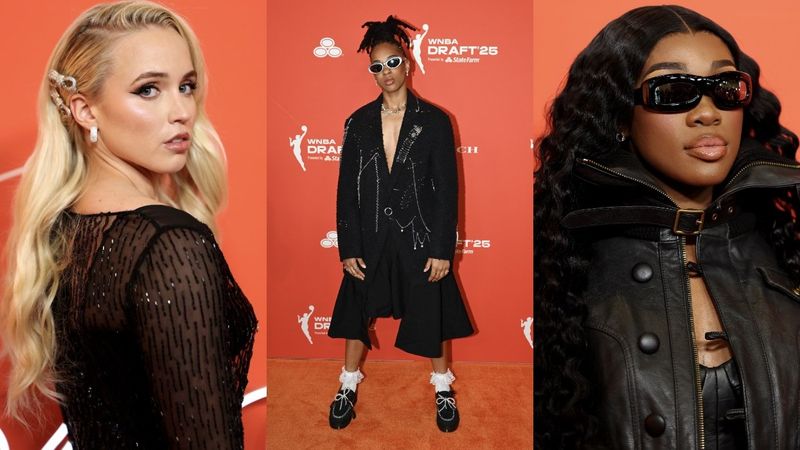
 Cindy Ord/Getty Images
Cindy Ord/Getty Images










